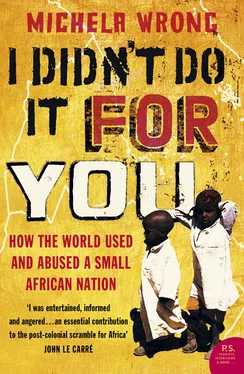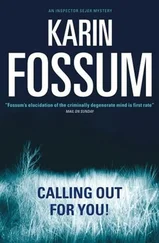Journalists are mocked for using their taxi drivers as political barometers. But the conversation between airport terminal and city centre can prove more insightful than any diplomatic briefing. I was accustomed to the standard African taxi manâs dirge. It started with a whinge about economic hardship, moved to a caustic assessment of both the president and oppositionâs shortcomings, and climaxed in a prediction â usually horribly prescient â of just how awful things were about to get. In Eritrea, the first taxi driver I met turned out to be one of Eritreaâs longest-serving ex-Fighters. Ministers booked for interview strode past me in reception to knock shoulders with him and pat him on the back. He not only thought the president was a hero, he knew exactly what needed to be done to rebuild a war-shattered country. But then, so did every Eritrean I met. In truth, conducting a range of interviews began to feel like an exercise in futility. Whether minister, businessman, waiter or farmer, everyone seemed to think along identical lines. But this didnât sound like regurgitated propaganda. The need for self-reliance, the miracles that could be worked through discipline and hard work, the importance of learning from Africaâs mistakes: such beliefs had been hammered out during committee meetings and village debates, for the EPLF was passionately committed to grassroots discussion. I had the uncanny feeling that I was speaking to the many mouths of one single, Hydra-headed creature: the Eritrean soul.
By God, they were impressive, though it has to be said that one rarely experienced a fit of uncontrollable giggles. The self-deprecating, surreal hilarity I had come to appreciate in central Africa as the saving grace of lives lived in grotesque disorder was absent here: Eritreans did dour intensity better than they did humour. Their wiry physiques â the result of not years, but generations of going without â spoke of iron control. Their personalities were as starkly defined as the climate itself, stripped of fuzzy edges. If you made the mistake of flippantly challenging one of their black-and-white certainties, you could feel the shutters coming down, as they withdrew into prickly, how-could-you-expect-to-understand-us censoriousness.
A refrain kept running through my head, a catchphrase from a British sitcom of the 1970s. âI didnât get where I am today â¦â a beetle-browed magnate would intone at the start of every sweeping pronouncement. Eritrea, it seemed to me, had its own, unarticulated version of the uncompromising mantra. âI didnât spend 10/20/30 years at the Front to be patronized by a foreigner/kept waiting by a bureaucrat/messed around by a traffic cop,â it ran. Extraordinary suffering brought with it, I guessed, a sense of extraordinary entitlement that easily tipped over into chippiness. âWhy are Eritreans so bad at saying âthank youâ?â I once asked an ex-Fighter friend. I was feeling slightly irritated at receiving the classic Eritrean reaction to a gift chosen with some care: an expressionless grunt, followed by the quick concealment of the unopened present, never to be mentioned again. âI bet itâs because they feel itâs below their dignity.â My friend launched into a long explanation as to how, in rural communities, a peasant was expected automatically to share anything he received with the village. This democratic practice had been maintained at the Front, he said, so gifts had little meaning. In any case, showing emotion â whether happiness or grief â was regarded as a sign of weakness, simply not done. Even saying âpleaseâ seemed unnecessarily effusive. The explanation continued, various theories were explored, until finally my friend paused and added, almost as an afterthought, âAnyway, thereâs a feeling that we fought for 30 years and no one helped us, so why should we thank anyone? We donât owe thanks to anyone.â
Even that small admission felt like a major insight, because Eritreans, famous for their reserve, do not like to talk about themselves. Whether they spoke in Italian â the Western language of the older generation â or English, taught to the young, it was always a struggle persuading an Eritrean to drop the collective âWeâ and experiment with a self-indulgent, egotistical âIâ. The flow of words would slow to a dribble and dry up. For the tegadelti , in particular, it went against every lesson of community effort and shared sacrifice learnt at the Front. A curious monument taking shape on one of Asmaraâs main roundabouts captured those values. Celebrating its victory, any other new government would have ordered either a statue of its leader, a tableau of freedom fighters depicted in glorious action, or a symbolic flaming torch. The Eritreans chose instead an outsize black metal sandal, a giant version of the plastic shidda worn by hundreds of thousands of Eritreans who could afford neither leather nor polish. Ridiculously cheap, washable, long-lasting, the Kongo sandal â as it was known â was the poor manâs boot, perfect symbol for an egalitarian movement. It must be the worldâs only public monument to an item of footwear.
My survey done, I took the image of Eritrea away with me, a memory to be treasured and coddled, summoned when bleakness loomed. I was not alone in finding that with Eritrea as an example, Africa seemed a little less despairing, a touch more hopeful. If Eritrea, with its devastating history, could pull it off, surely other nations might too?
Then True Believerdom took a tumble. In May 1998, to general astonishment, Eritrea and Ethiopia went back to war, after a minor dispute over a dusty border village escalated into mass mobilization on both sides. The much-trumpeted friendship between Isaias and Meles had counted for little: the two leaders were no longer talking. Ethiopia accused Isaias of being a megalomaniac, Eritrea regarded the new war as proof that Ethiopia had never digested the loss of its coast and was bent on reconquest. Defying an Ethiopian flight ban, I flew to Asmara with a group of journalists, our chartered Kenyan plane taking a looping route via Djibouti and over the waters of the Red Sea to lessen the chances of being shot down. At the end of a buttock-clenching trip, we landed to find Eritrean helicopters crouched on the tarmac of an airport that had just been bombed by Ethiopian jets. Foreign embassies were scrambling to evacuate their nationals, the BBCâs World Service was telling British citizens to leave while they still could.
The mood in town was bewildering: every Asmarino I met was convinced they would win this new war, albeit at the highest of prices, every foreign journalist believed they must lose. The Eritreansâ unshakeable certainty was exasperating, a positive handicap during a crisis that might require for its solution the murky skills of diplomacy, an ability to conceive of shades of grey. As ever, the community stood grimly united. âEritrea is not made of people who cry,â said an old businessman who had just waved goodbye to a son going off to fight. âWe did not want this, but once it comes we will do whatever our country requires.â The Eritrean capacity for speaking with one voice was beginning to sound a little creepy to my ears, as depressing as the belligerent warmongering blasting from television screens in Addis Ababa. In its chiming uniformity, it had a touch of The Stepford Wives .
Two years later, after at least 80,000 soldiers from both sides of the border had died, the doubters were proved correct. With Ethiopian forces occupying Eritreaâs most fertile lands to the west and a third of Eritreaâs population living under UNHCR plastic sheeting, a peace deal was signed and a UN force moved in to separate the two sides. The war had been a disaster for Eritrea. But True Believers, already seriously questioning their assumptions, were about to be dealt a final, killer blow. In September 2001, President Isaias arrested colleagues who had dared challenge his handling of the war â including the ex-Fighters who had been closest to him during the Struggle â and shut down Eritreaâs independent media, a step even the likes of Mugabe, Mobutu and Moi had never dared, or bothered, to take. So much for Africaâs Renaissance. Many of the ministers whose independent musings had so impressed me were now in jail, denied access to lawyers. Plans to introduce a multiparty constitution and stage elections were put on indefinite hold, bolshie students sent for military training in the desert where no one could hear their views. Aloof and surrounded by sycophants, Isaias clearly had no intention of stepping down. As it gradually became clear that this was no temporary policy change, Eritrean ambassadors stationed abroad began applying for political asylum, members of the Eritrean diaspora postponed long-planned returns. As for the economy, who was going to invest now that the countryâs skilled workers were all in uniform, the president had fallen out with Western governments, and relations with Ethiopia, Eritreaâs main market, were decidedly dodgy? No one cuffed the beggars on Liberation Avenue any more, because the beggars were not chirpy urchins but the old, left destitute by their childrenâs departure for the front.
Читать дальше












